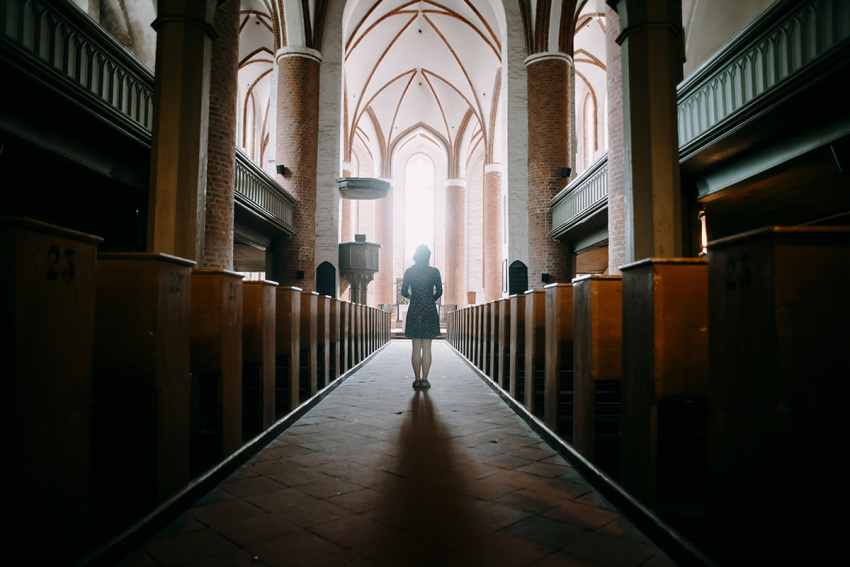Most US adults say church buildings are 'transcendent' spaces but majority don’t visit regularly

While most U.S. adults view church buildings as transcendent spaces where they can experience a sense of peace and a connectedness to the divine, the majority, including self-identified Christians, do not regularly visit a space they consider transcendent, new research shows.
An online quantitative survey of 2,000 U.S. adults, conducted from Feb. 28 to March 9, was published by The Barna Group in a new report called "Making Space for Inspiration," part of a three-part series in partnership with Aspen Group. The study explores how church leaders can better connect with people through more intentional design of their physical meeting spaces.
According to the report, 55% of U.S. adults reported that they do not regularly visit a space they consider "transcendent." The study defines transcendent spaces as "a physical place that brings you closer to experiencing connection with something beyond the physical world."
Only 37% of self-identified Christians said they regularly visit transcendent spaces, but 89% of practicing Christians surveyed reported Christian churches as being transcendent. By comparison, 62% of adults in the general population said the same.
A higher number of respondents agreed that nature is more transcendent than church buildings. Seventy percent of U.S. adult respondents reported nature as a transcendent space, while 74% of practicing Christians agreed.
Practicing Christians (66%) are more likely than all U.S. adults (51%) to believe that spaces in their homes can be transcendent.
When asked what makes space "transcendent," more than half (51%) of respondents said a "sense of peace or calm." The data also suggests that no population demographic — including practicing Christians (43%) — says "an awareness of a greater power" is what makes a place transcendent.
Just over a quarter of all respondents (26%) and 40% of practicing Christians said that "a sense of connectedness to the divine" is what makes a place transcendent, while 39% of practicing Christians and 23% of U.S. adults said that "a sense of being led to prayer" makes a place transcendent.
Although America remains a highly religious nation, with seven in 10 claiming affiliation with some organized religion, fewer than half of Americans reported having formal membership in a specific house of worship for the first time in nearly 80 years in a Gallup analysis published in 2021.
In 1937, when Gallup first measured formal membership in houses of worship, 70% of Americans had formal church membership. That measure remained steady for the next 60 years until it began a steady decline in 1998. In 2020, formal membership in houses of worship stood at 49%.
The Gallup analysis pointed to the growing number of Americans who express no religious preference.
In the last 20 years, the share of Americans with no connection to any religion grew from 8% in 1998 to 2000 to 21% in the previous three years. Only 4% of people from this group said they held formal membership in a church, synagogue or mosque. Between 1998 and 2000 that figure was 10%.
"While it is possible that part of the decline seen in 2020 was temporary and related to the coronavirus pandemic, continued decline in future decades seems inevitable, given the much lower levels of religiosity and church membership among younger versus older generations of adults," wrote Gallup Senior Editor Jeffrey M. Jones.
One of the goals of the "Making Space for Inspiration" study "was to assess respondents' feelings surrounding space, starting first with one's perception of transcendence or connection to a higher power," which is "especially important to consider in the wake of pandemic-era disruptions that have left many churches wondering about ideal environments for worship services."
The research firm said the full study report offers ways congregations can make their buildings more attractive as transcendent spaces for the public.
"The data show that there is ample opportunity for churches to become safe, inviting, welcoming spaces for all Americans, not just Christians," a Barna analysis states. "If pastors are open to making changes, the church building and the land it sits on can be used to solve some of the formative issues pastors are grappling with for their people today."



























